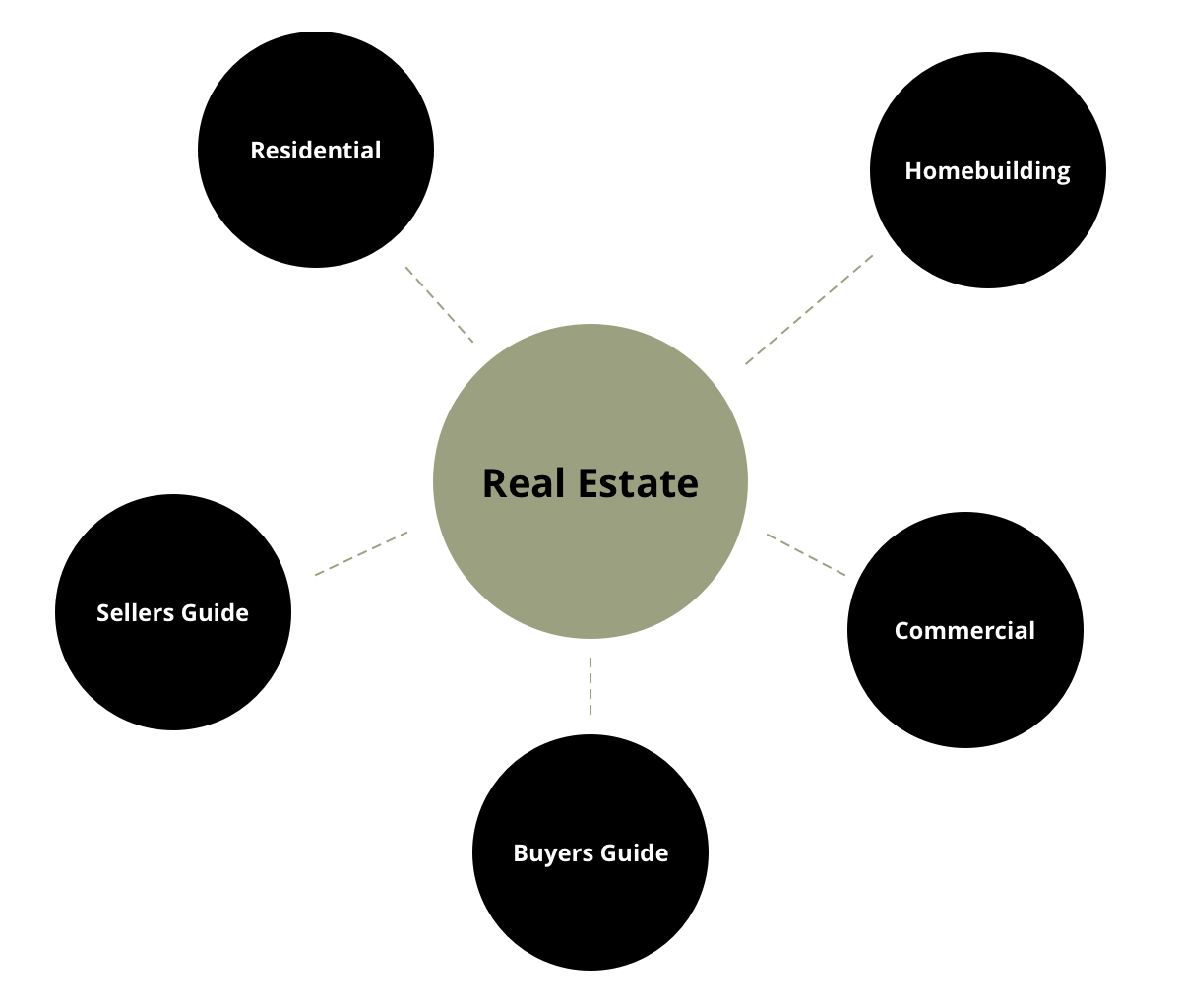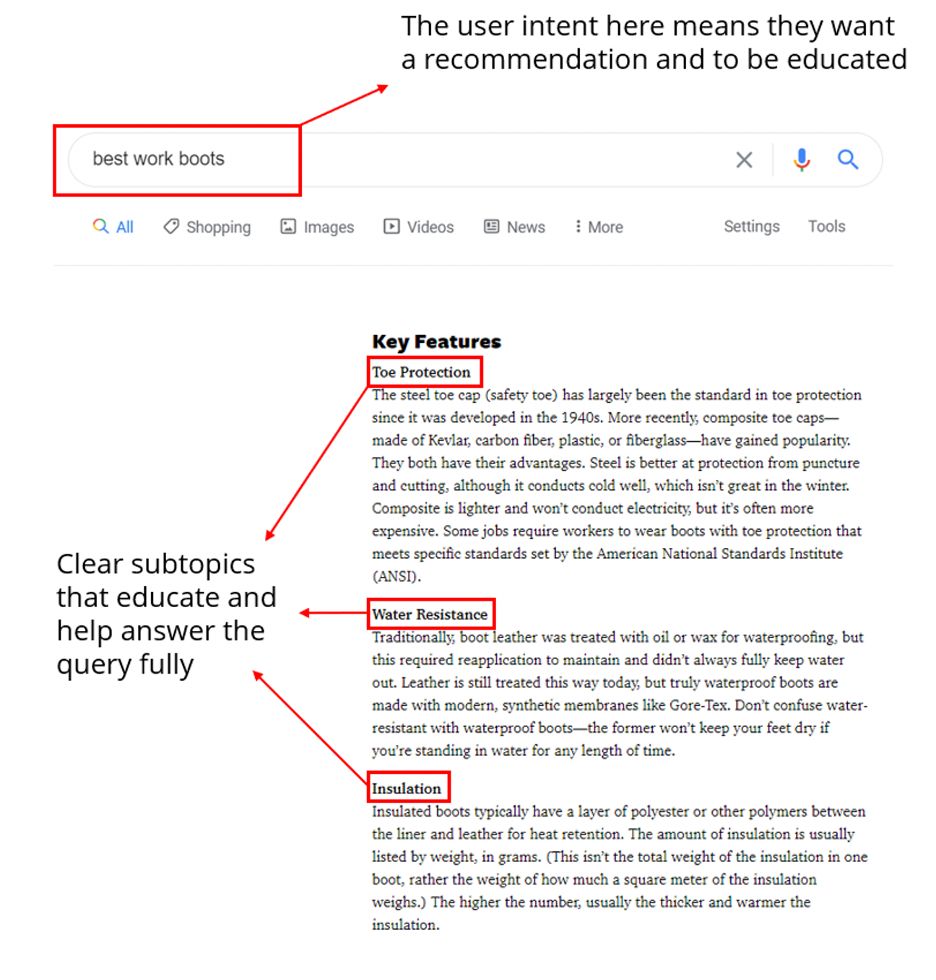2020 SEO Insights: What Changed in Q4 2020

At Velir, we offer updates about the latest changes in SEO that could impact our clients’ websites, so we can help them develop the most up-to-date strategies to improve their search rankings. Each quarter, we collect our insights about these changes and share them with our clients via email. Here are some of the things we learned in the last quarter of 2020.
>> Sign up for our email newsletter to receive SEO updates
Authority Profiles: Are All Sites Made Equal?
Our Quick Summary:
- Google has admitted that they have an authority profile which they use to rank websites
- Authority profile is different than it used to be and focuses on topical authority
- Topical authority is the concept of an individual sites being authorities on topics rather than their whole domains being authoritative domains
- Competitive analysis is important to leverage to analyze vertical specific signals of authority and reverse engineer success
When search engines determine what websites they should show for a specific keyword, they look at hundreds of criteria including content length, structure, meta data, and individual words on pages. Their algorithms then decide which of these pages are the strongest and answers the question being asked the best based on the intent of the keyword.
But, how does Google determine if a source is reliable? They rely on authority. Conventionally for SEO, an authoritative website is one with high-quality links and lots of high-quality content. Google tracks these metrics and weighs with the other factors to decide which order to show these pages in its search results.
Google released this statement in a recent blog post about exactly how they are now looking at authority and why:
"We've learned that sites that demonstrate authoritativeness and expertise on a topic are less likely to publish false or misleading information, so if we can build our systems to identify signals of those characteristics, we can continue to provide reliable information. The design of these systems is our greatest defense against low-quality content, including potential misinformation, and is work that we've been investing in for many years."
This quote highlights the importance of authority in health, finance, civic information, and crisis situations, but there is still a lot that can be applied to all industries. Google is always trying to improve the information they display to users, and they are admitting that "authoritativeness and expertise" are key elements in improving the quality of information they display. This confirmation should then reflect our approach to organic search strategies.
With all this talk of authority, what are the real steps that we can take to build more authority and to rank better for our websites?
This information leads us to believe that two things are potentially very effective:
- Topical Authority
- Competitive Analysis
1. Writing to Improve Topical Authority
In the quote we just shared there is an important sentence that provides excellent insight into why writing for deep content in a topic is pivotal: "We’ve learned that sites that demonstrate authoritativeness and expertise on a topic are less likely to publish false or misleading information.”
This is a confirmation of something that content writers and SEO experts have long suspected and which numerous case studies have shown is important. It’s that you need deep content in a topic for it to rank. Many SEOs refer to this a “supporting content.” What we mean by deep is that one post will not cut it. If a topic is essential to your business, one long well-written post is not going to be enough. You need multiple posts that explore the topic in-depth and in detail.

In this example, the main topic of "Real Estate" has several subtopics and opportunities for fragmented content.
You can see how this structure makes it much clearer that this site understands the topic much better because the other nuanced articles and content on the site continue to explore the idea. That makes them more authoritative and trustworthy on this topic.
The great thing about Google emphasizing topical authority is that you can actively plan around it. This is unlike domain authority, which gives larger sites a serious and occasionally insurmountable advantage since it can take years of constant work to grow a site so it can compete. The new approach to topical authority is much more feasible and can be baked into a content strategy for sites of any size. This evens the playing field and means if a smaller site has a well-focused content strategy, they can become seen as an authority on a specific topic and beat out larger sites in search results.
2. Performing Competitive Analysis on Authoritative Sites in Your Industry
Reverse engineering your competitors’ success is a critical skill in any industry, particularly in SEO. When thinking about everything we have discussed so far, there may be some questions, like “how much content should we have on a topic to be an authority in the topic?”, “What should we write about on this topic?”, and “Which keywords should we target?”. These questions can be answered with an in-depth competitive analysis. When looking at specific industries, it can be difficult to offer general rules to follow that apply to everyone. For some industries, 1,000-word write-ups are long enough with only a handful of other articles on the topic. In other applications, 10,000-word write-ups with hundreds of articles on the topic are needed. Regardless of your industry, competitive analysis provides massive value by making your next steps much clearer. This clarity allows us to better understand your end goal so we can make informed decisions together.
Many times, there are clear differences between the top content and content that isn’t ranking nearly as well for your competitors. A simple analysis can help to guide efforts to position your information and find weak points on your own site compared to others.
Here are some common mistakes we recommend looking out for in your content:
- The content is too brief
- The content isn’t properly structured
- Meta data isn’t optimized
- There isn’t nearly enough content on the topic to be authoritative
- The content doesn’t match the user intent of the searches it’s being shown for
- There’s no clear keyword understanding or a lack of keyword research to inform content
Google AI: Interpreting Long-Form Content, Subtopics, Long-Tailed Keywords, and Videos
Our Quick Summary:
- Google is better at interpreting longer content and the context of long-form content
- Organizing your content using helpful subtopics and subheaders will become increasingly important as AI understands longer strings of content
- Finding long-tailed keywords to use in subheaders is an important way to organize your content to help increase organic traffic for specific pages
- YouTube instituted a new feature called “video chapters” which allows content creators to organize videos into different segments such as intro, main, and outro
In a recent blog post by Google, they revealed that their AI is getting better at interpreting longer strings of content, which includes both text and video.
Search engines have always shown that clear, understandable information is ranked more favorably. This specific post talks about the evolution of their AI, which is now improving to understand more context, specifically with long-form content.
This means that content structure will be more important to effectively optimizing for Google search. The AI’s ability to understand context will mean that providing clear structure, like a strong introduction to an idea before jumping into analysis, will be rewarded by crawlers.
Naturally, if the context is important, then proper use of subtopics and subheaders will also matter. Since search crawlers' understanding of the content will be increasingly nuanced, we want to ensure that content properly fits user intent and touches on nuanced subtopics to fully answer a search query.
Let's look at a search for an example that does this well:

This example provides a clear structure which helps crawlers and humans understand what is important to consider when looking for work boots. Just at simply glimpsing a section of the article we can see that it is doing a good job at fulfilling the user intent.
When creating content, it is essential to structure it so it’s as straightforward as possible and provides the most value for users. This will also help future proof your content since search engines are always trying to show better content that adds value to users.
For videos, this applies as well, especially since YouTube released a new featured called “video chapters,” which allows content creators to put in visual indicators of different segments of their videos such as intro, main, and outro.
Google’s December 2020 Algorithm Update: How Might It Impact Your Site?
An algorithm update is when a major search engine such as Google changes their formula for ranking pages. The reason why this December update is so impactful is because it is what is known as a “core algorithm update”, which isn’t just focused on one specific factor of Google’s algorithm, but rather on how Google evaluates sites as a whole. Core updates can have a huge impact on your website’s search visibility and your future SEO strategies.
Here’s a quick summary of early findings from the new update:
- User experience and relevance are becoming larger points of emphasis.
- Long form content is powerful for winning better results.
- When creating content, ensure it fully answers a human’s question and provides an excellent user experience.
- Creating logical subtopics and headers within your text that clearly explain and address the topic is important.
- Reviewing older content to find articles that can be updated to better match user intent is a strong strategy to leverage.
When approaching your organic search strategy, it’s important to remember that Google wants to display the best and most helpful information to their users. You have to make sure you prove to Google that your site fits that description as an authority on our topics, it matches user intent, has enough content, adds value for readers, includes keywords in its content, and is clearly organized. If you ever feel lost on any of these, you can always look at what the top performing sites are doing in a competitive analysis to reverse engineer their success.
You can also reach out to us with any questions or learn more about our SEO services to see how we can help you with your website’s organic search strategy.



